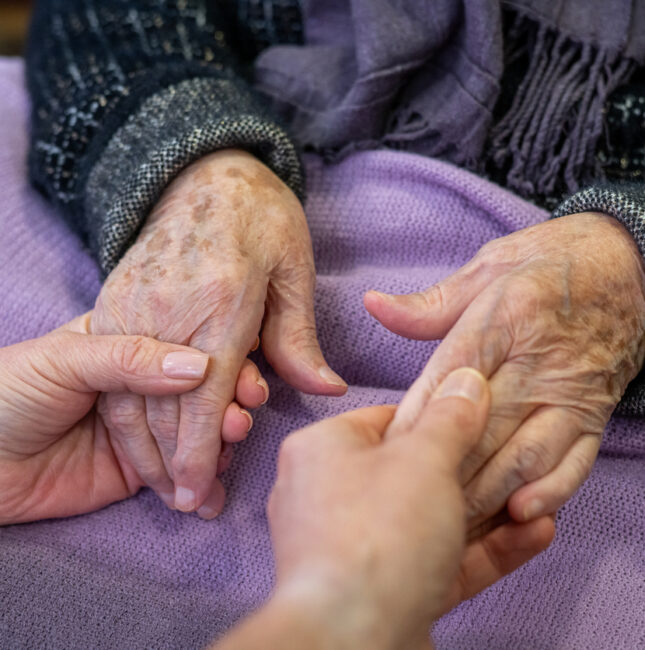How to talk to someone going through a difficult time
October 10, 2023
“It’s all about compassion, empathy and active listening when talking to someone who is going through a hard time,” says Peter Brown who works as a Hospital Chaplaincy and Pastoral Care Manager at CatholicCare.
For Peter, he looks to Jesus and St Mary of the Cross MacKillop as models of compassion. As Australia’s first saint, Mary Mackillop was “a big-hearted woman full of love and compassion. No-one was excluded from her love. She had a special place in her heart for those who were disadvantaged, marginalised or isolated…” (Sisters of St Joseph, 2009).
In the Gospels, it is clear that Jesus not only taught love, but He also modelled love, and Jesus’ love was not limited to His friends and those He knew. The Bible says, “God is love.” (1 John 4:8). Christ’s very nature, as God, is love.
Both Jesus Christ and St Mary of the Cross MacKillop walked in the shoes of those who were suffering, which is the first and fundamental step in helping someone during their darkest hours.
Inspired by the work of Brené Brown, Peter emphasises the importance of empathy when you are talking to someone going through a difficult time. “Empathy,” Peter says, “fuels connection.” Peter explains that to connect with others, “I have to connect with something in myself that knows that feeling.” When a person is sharing their thoughts and troubles with you, Peter says that it is important to avoid ‘silver-linings’ and trying to ‘make things better.’ What makes things better, Peter says, is connection.
Peter offers some practical tips for talking to someone who is going through a difficult time:
- Pay attention to your body language – use eye contact and open postures rather than folding your arms or crossing your legs. Mirror the other person’s expressions and postures.
- Presence – ensure that you are fully present to the person by removing distractions such as phones.
- Openness – set aside your own judgements and be open to what the person has to say.
- Focus – focus on what the person is saying, rather than on how you will respond.
- Relax.
- Understand your own vulnerability and limitations.
- Refer on.
CatholicCare offers a range of services to support people during challenging times in their lives. To find out more, please visit www.catholiccaredbb.org.au or call us on 1800 324 924.
More news stories like this one
Sarah blossoms at Clarke Road
Find out how the Click & Connect group at the Disability Hub Waitara boosted Sarah's confidence and tech skills over time.
Read MoreIntroducing Crossroad Companions end of life service
When you receive a terminal diagnosis, life can suddenly feel uncertain and overwhelming. Questions arise, roles change, and you may find yourself moving from one medical team to the next. We're here to help.
Read MoreWorld Day of Social Justice – injustice isn’t accidental
World Day of Social Justice isn’t about slogans or good intentions. It’s about facing an uncomfortable truth - the systems we live within do not work equally for everyone, and pretending otherwise costs people their dignity, safety and hope.
Read More


